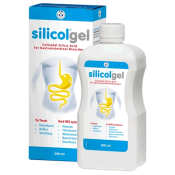What are oligosaccharides?
An oligosaccharide is characterised by a carbohydrate chain made up of 3-10 monosaccharides (simple sugars). In the foods we eat, oligosaccharides are often components of dietary fibre. Oligosaccharides are malabsorbed by the small intestine and therefore go on to undergo fermentation in your large intestine. This will naturally mean some gas and subsequent flatulence may be produced with the consumption of oligosaccharides but, if you suffer from IBS, a cascade of more intense symptoms is often the result.
Oligosaccharides are generally classed as prebiotics, which are normally considered to be beneficial agents as they act as a source of food for our ‘good’ gut bacteria. However, if you suffer from IBS, prebiotics are often not well tolerated and may cause more problems than benefits.
There are two types of oligosaccharides; fructans and galacto-oligosaccharides (GOS), which we will discuss below in more detail below.
What are fructans?
Fructans are a class of dietary fibre comprising short chains made up of the monosaccharide fructose. Fructans with a short chain length (2-9 units long) are known as fructo-oligosaccharides. Inulin is a common longer chain fructan (10+ unit chains) found in foods such as chicory.
How do fructans affect me?
Fructans are not completely absorbed at the small intestine and undergo fermentation in your large intestine. In most people this process is asymptomatic but if you have IBS this process is problematic and can produce a host of symptoms including flatulence, bloating, stomach pain, constipation or diarrhoea.
Fructan vs fructose intolerance?
Despite being made up of fructose molecules, joined together to make polymers, fructans are structurally different from fructose and are processed differently in the body. Your body attempts to breakdown fructans into smaller units, which can be absorbed, but it is estimated only 5-15% of fructans are successfully taken in at the small intestine due to an insufficiency in enzymes able to break down the special bonds binding the fructose molecules together.
In contrast to this, problems with fructose intolerance are generally due to inefficient intestinal transport proteins called GLUT5 or GLUT2, which act to physically transport the fructose across the small intestine wall into our bloodstream.
It is possible for someone to be asymptomatic after the consumption of fructose (transporters are working fine) but experience an intolerance to fructans (enzyme insufficiency). This is why these are separate classes in the FODMAP framework and should be considered separately.
Where are fructans found?
Fructans are arguably the biggest class of food contributing to the FODMAP group and are found in a wide variety of foods, including certain fruits, vegetables, grains, legumes, nuts and additives. We have produced a more extensive list of specific foods containing fructans in our High FODMAP foods section.
What are Galacto-oligosaccharides (GOS)?
Galacto-oligosaccharides are short-chain carbohydrates made up of the monosaccharides galactose and glucose joined together.
How do GOS affect me?
As with fructans, galacto-oligosaccharides are not well digested in the body. This is thought to be due to a shortage of specific digestive enzymes responsible for breaking GOS down and, as a result, they readily appear partially undigested in the large intestine where they are a target of your gut bacteria.
Where are GOS found?
GOS mainly occur naturally in legumes such as lentils and beans. They are commonly an ingredient in commercially-produced prebiotic products that are aimed at promoting the growth of beneficial gut bacteria. We have produced a more extensive list of specific foods containing GOS in our High FODMAP foods section.








